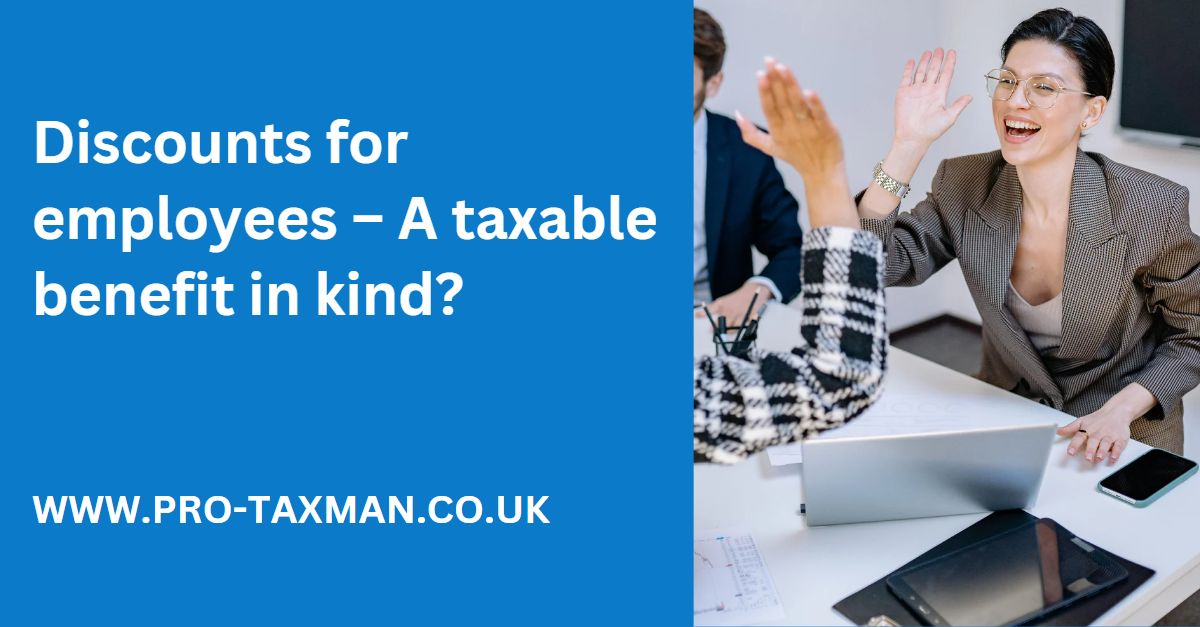Pre-pandemic, giving discounts to employees was invariably only offered by the larger companies. However, because employee benefit schemes save the employer money, many SMEs are looking to provide such schemes. The discounts need not relate to the company’s products – there are schemes available that give employees access to a wide range of deals with other companies via a points system, allowing them to shop and save all year round on items that matter to them.
The discount amount needs to be carefully calculated to ensure no benefit in kind arises. There will be no benefit so long as the price paid by the employee is below the marginal costs of providing the goods. The marginal costs comprise the cost to the employer of the production or acquisition of the goods or services concerned, together with a proportion of any overhead expenses directly related to that production or acquisition (e.g. delivery charges, taxes or duties paid in respect of the goods or services by the employer). However, fixed costs, such as rent are excluded.
Staff contribution
Should the employee pay an amount towards the scheme, the benefit in kind is reduced. The benefit will be the cost of the product less any amount ‘made good’ by the employee. There may be instances where the employee is better off cash-wise by making a payment as the example shows.
Example
A company offers a staff discount of 15%. The product has a selling price of £40 (including VAT) so the employee pays £34 (85% x £40). If the marginal cost is £32 (£30 + postage) there will be no benefit in kind as the payment exceeds the marginal cost. The employee is better off by £6 because of the discount which is not taxable.
In some instances, HMRC will accept that there is no benefit in kind where the discount is also offered to the general public.
Employee tax charge
If a taxable benefit arises the amount is treated as earnings in the tax year in which the discounted goods or services are provided. Since this is a benefit in kind rather than a cash payment, the employer is not obliged to operate PAYE. However, the benefit will be subject to income tax and Class 1A NIC on the employer. Such benefits can be reported under the payrolling benefits and expenses online service to show that tax on the benefits is being collected via the payroll.
Even if there is no charge under the benefits code, one may arise under the ‘second-hand value rules’ if the value of the goods the employee buys exceeds the price paid. The tax charge will be on the second-hand value less any amount paid by the employee. Again, income tax and Class 1A NIC will be in point.
Voucher schemes
The discounts do not need to be of the company’s products or services. Many independent companies provide voucher schemes offering a wide choice of where employees can spend their money. Some offer tax-free monthly lotto draws and competitions and the employee can choose which shop/service to use.
Vouchers which can be converted into cash or exchanged for goods which can be turned into cash, are subject to tax and NIC. However, if the items purchased are exempt (e.g. a bicycle qualifying for the cycle-to-work scheme), the voucher will also be exempt.
Practical point
With inflation meaning items are increasing in value/cost on nearly a daily basis, regular review of the relevant costs and extent of the discount will be necessary.
Need professional accounting service or Tax advice? Contact us to book a 15-min Free Consultation with us today.
To find out more please follow us on Facebook, Twitter, or LinkedIn. Feel free to contact us on 0333 006 4847 or request a call back by texting 075 6464 7474

